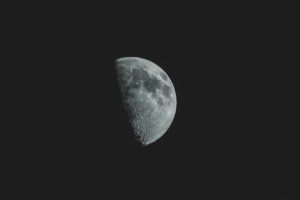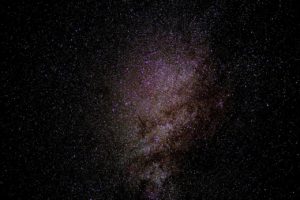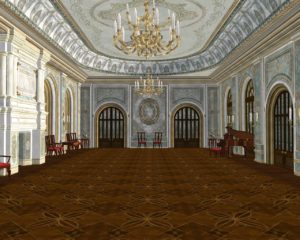
Pexels / Pixabay
Arieos and Falson were brothers, light-skinned, dark-haired, large-eyed young men who understood one another without words. They were not alike in temperament, Arieos being bolder and quick-witted, Falson more perceptive and deeply rooted in the history of their people.
They sat together upon a rocky, lifeless land beneath a brilliant array of stars. Their people had come from those stars, their stories said, and the center of their civilization spiraled out from the remains of the vessel that had brought them to this place.
That monument was far away, months away, and Arieos and Falson sat alone, tired and hungry and awed.
They had been born in a land of glimmering night, which the first survivors had named Midsummer. It had no light except those distant stars, no ball of fire come to visit at regular hours as told in the stories of the old land, just the twinkling of gems in a blanket of black, a shimmering canvas to watch over them while they slept and when they woke.
But Arieos and Falson saw something upon the horizon, an edge as of fire. It was almost too bright to look at even from this distance.
“It is the Sun,” Arieos said wonderingly.
“A sun,” Falson whispered. “Not ‘the.’ But light. Sunlight.”
“We were right,” Arieos said. “This is not an abandoned land, floating alone in space. This is a world. Beyond that line, there might be creatures and plants we cannot imagine.”
“There might be,” Falson said. “There might not be.”
“Dream, Falson!”
Falson smiled. “I always dream. But it does not change what is.”
When they closed their eyes to sleep, the light burned behind their eyelids.
Upon waking, they continued toward the light. Soon they could see from the heights the line, straight and unyielding, that separated the night from the day. The land beyond was barren and rocky, much as the land beneath the stars was, but they could not be certain of what lay farther, for their eyes were too weak to look long into that brilliance.
They approached with heads bowed, their thick clothes uncomfortably warm. Blasts of hot wind smashed against them. Falson stopped first, and Arieos, understanding, turned back. Together they returned to a hollow beyond a ridge, where they could shelter.
“You want to turn back,” Arieos said.
“I do not want,” Falson said, “but I believe we should.”
“We were meant for light,” Arieos said angrily. “Man was born in light. Did we come so near to hide our eyes and trek back home now?”
“It will take time, I think, for us to adjust.”
“Time,” Arieos said flatly.
“Perhaps a generation or two.”
Arieos walked away. Falson waited patiently for his brother to return, knowing his temper would take time to cool.
“I don’t want to talk about it tonight,” he said when he appeared again.
Falson nodded.
They ate little, their food nearly gone. For many days the land had not yielded the reeds and crawling creatures they gathered to supplement their dwindling rations. They lay awake instead of sleeping, the sky lighter than they were used to.
“You cannot see the stars here,” Falson said. Hundreds were still visible, and yet the sky seemed emptier. “In the light, there will be none.”
“There will be one,” Arieos said, “a force of fire like passion and conquest and religious fervor.”
Falson rose when Arieos finally fell asleep. He covered his face with a cloth and removed the layers that protected him from the cold. He could not see clearly, but the light led him. He walked until his his skin seemed to burn.
“Arieos!” he called. “Arieos!”
From a distance came the answer: “You fool!”
“Am I in the light?”
“No. Not yet.
“How is it?”
“It burns. It is too strong.”
“Come back.”
“If I don’t go in, you will.”
Arieos did not reply for a long time. Falson started forward again.
“Come back!” Arieos called. “Please.”
Falson turned back.
They did not speak the rest of that day, and they did not fall asleep for a long time. When they woke, they looked to one another and began to pack. They looked once more at the light-seared land beyond.
“We live in shadowlands,” Arieos said bitterly. “Every day I will think of how close we were.”
“It would kill you.”
“It would be worth it.” Arieos looked at his brother with piercing eyes. “Do you understand that?”
Falson nodded slowly. “The desire consumes you. To be consumed would be fulfillment.”
They stood in silence for a time, one knowing he must listen, the other that he must speak.
“I may hate you after today,” Arieos said.
“I know.” Falson touched his brother lightly on the shoulder before turning to head deeper into the dark. “But I think it is worth it.”
Arieos remained a moment longer then joined his brother for the arduous journey home.









Recent Comments